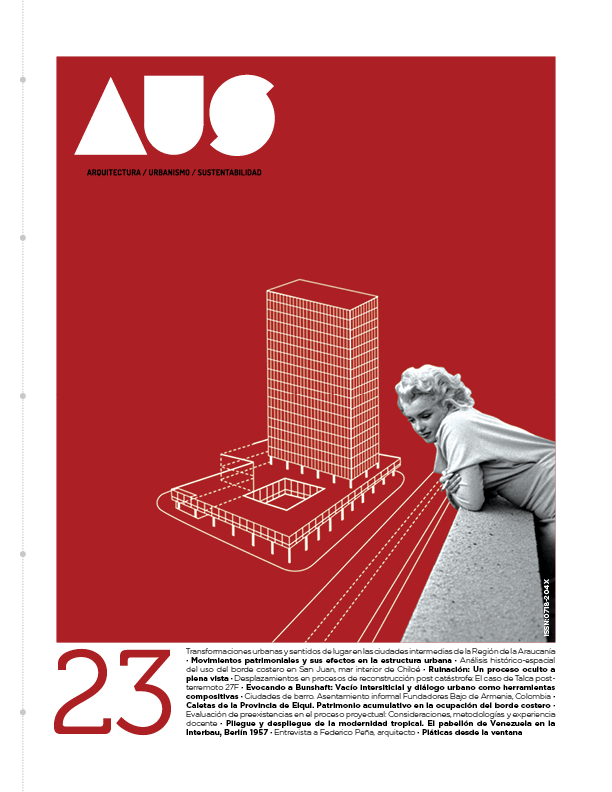Coves in the Elqui Province. Cumulative heritage in the occupation of the coastal edge Alejandro Orellana Arquitecto, Universidad de La Serena, Chile. Académico, Departamento de Arquitectura,
Main Article Content
Abstract
Elqui’s coves represent the evolution of the pre-Hispanic way of using the coastal edge. Consolidated with the 19th century industrialization, and undergoing an increasing urbanization process, they see their social development and cultural heritage under threat due to the extensive use of the coastal edge and relationships with larger urban areas. Due, however, to the complexity of the relations established and their temporary manifestations, territorial inheritances that are part of the coves’ heritage have been building up. This paper discusses the coves in the Elqui Province, probing into cumulative processes that shape the current heritage of their mode of occupation. The communities have shown great resilience, however, by integrating external impacts to the point that their identity cannot be understood without then. Notwithstanding, vulnerability to environmental impacts that have the potential of destroying territorial balance is apparent, making any adaptation impossible.

